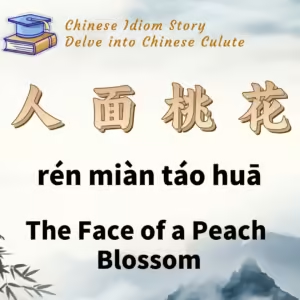
Chinese Idiom: 素琴无弦 (Su Qin Wu Xian)
English Translation: A guqin without strings
pīn yīn: sù qín wú xián
Idiom Meaning: This idiom describes a leisurely and carefree lifestyle, often associated with simplicity and tranquility.
Historical Source: Song Shu (《宋书 · 陶潜传》)
Idiom Story:
Tao Yuanming, a renowned literary figure of the Jin Dynasty, is known for his love of nature and simple living. Although he had no understanding of music, he possessed a guqin (a traditional Chinese string instrument) that had no strings. For him, this instrument became a symbol of his carefree existence.
Whenever he had wine and felt joyful, he would caress the stringless guqin, using it as an outlet to express his feelings. Regardless of the status of his guests, if there was wine available, he would bring out the guqin.
On occasions when he became intoxicated first, he would honestly tell his guests, “I’m drunk and wish to sleep; it’s time for you to go home.” His sincerity and straightforwardness endeared him to those around him.
When local villagers visited him, he would sometimes filter the newly brewed wine using the scarf he wore on his head, and then put it back on. This simple act reflected his enjoyment of life and his willingness to share good moments with friends, illustrating a life of leisure and contentment.
From these anecdotes about Tao Yuanming, the idiom “素琴无弦” emerged, symbolizing a relaxed and untroubled way of living.






